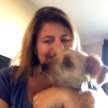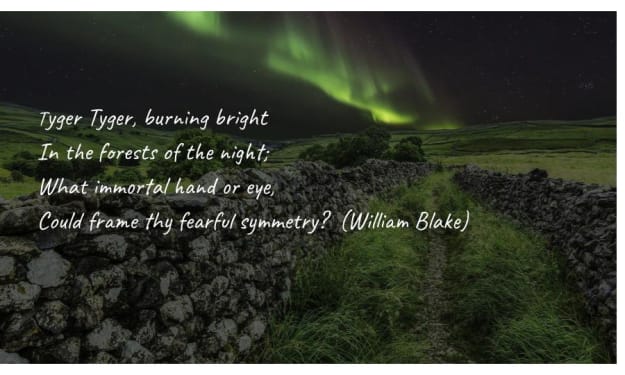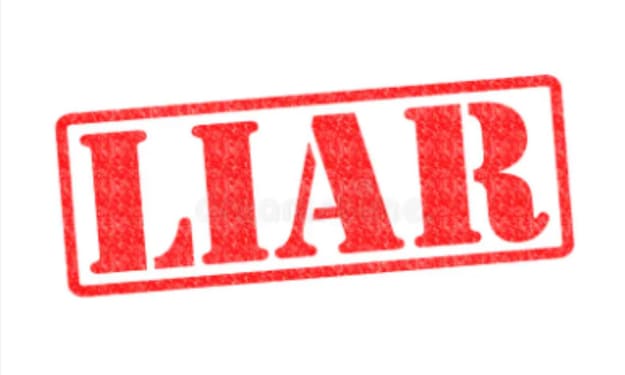
My father drove his Ford Mustang headlong into a tree a few days after I turned twelve. Mother was in the passenger seat. All that remained of my parents were bits of flesh and bone mixed with shards of metal, glass, and pieces of rubber. It was difficult for the authorities to determine what happened. But I knew.
They sent me to live with my grandfather in California. He was everything my father was not— resilient, full of life, and sober. Ironic, I thought, because my father lived a relatively stress-free life compared to my grandfather, who endured World War II and survived the death camp, Auschwitz.
At night, his screams tore through the darkness and invaded my sleep. The first time I heard him, I raced to his room with a baseball bat, convinced someone was torturing him.
I wasn’t entirely wrong.
His right hand—mangled by the repeated smashing of bones–and torso, an ugly web of welts and burns, documented the torture he suffered at the hands of the Nazis.
Why him? He wasn’t even Jewish.
He sighed when I asked. “There is no answer. Hate breeds hate. That is all.”
“But why did they hate you? A poor Polish farmer?”
“I refused to be like them.”
“What do you mean?”
He gazed into the distance. “I refused to change.”
“Couldn’t you pretend?”
He shook his head.
I glanced at the highway of scars that scaled his arms. “You’re too proud,” I said. A tempest rose in my chest. “They tortured you. They could have killed you.”
He nodded. “There are worse things than being killed.”
I narrowed my eyes in disgust. “Seriously? You’re just like him. He had a death wish, too.”
His faded blue eyes turned watery. “Your father was a sick man. He couldn’t control his addiction. Don’t hate him for that.”
“He was a bastard. He killed my mother.”
He put his gnarled hand on my shoulder. “Hate breeds hate. Never forget that.”
#
He was diagnosed with stomach cancer during my second year of college. I raged at the gods. How much punishment can one man withstand in a lifetime? He survived Auschwitz. Now you give him cancer? I dropped out of college and quit both my jobs so that I could take care of him. When they took him to the hospital, I sat by his side and refused to leave even after the nurses pleaded with me to get some rest. I knew what haunted his dreams, and I wasn’t going to let him die alone. The nurses grew to accept my presence and turned a blind eye when I used the hospital shower. I took short food breaks, mostly to grab a coffee and a sandwich in the cafeteria. That is where he spotted me.
I arrived later than usual for lunch one afternoon and managed to snatch the last tuna sandwich when an aged, mottled hand latched onto my wrist. I flinched in surprise and attempted to jerk my arm free. But the hand stayed; it moved with my arm as though it had found its final resting place. I glanced at the hand’s owner. He was about my grandfather’s age but wore a doleful expression that spoke of a broken spirit. His back curved slightly as if his spine had gone on strike, and tufts of silver hair sprouted from his head like unkempt weeds in a garden. Only his earthy brown eyes told a different tale. They gazed at me with palpable tenderness.
My body relaxed. Just a harmless old man, I thought.
I smiled at him and offered up my sandwich. “It’s the last one. Take it.”
He ignored my offering and lifted his hand to my face. It felt soft against my cheek— nothing like the shattered hand of torture with its twisted bones and scorched skin—or a hand marred by the punishing labors of Auschwitz. Nonetheless, it was a hand that spoke of suffering.
“At last,” he murmured.
Behind him, a flustered nurse scuttled toward us.
“There you are, Mr. Lewkowicz,” the nurse said and gently removed his hand from my face.
He reached out to grab hold of me again, but the nurse caught his arm, pacified him with hushed words, and led him away.
He turned once and called out to me, but I couldn’t make out what he was saying. He wasn’t speaking English.
“You remind him of someone he knew a long time ago,” a woman standing next to me said. “Sometimes that happens with the elderly.”
Back in my grandfather’s room, I took his twisted, broken hand in mine and held it while he slept.
When his eyes fluttered open, he said, “You look tired. Go home and get some rest.”
I shook my head.
“Promise me that you won’t give up when I am gone," he said. "Promise me that you will go back to school and live a full life. Do what your heart tells you, and be proud of who you are.”
“I promise,” I said.
He blinked in slow motion.“There was a young man, during the war in Poland. A Jew.”
“Yes?”
“I was nineteen,” he said.
I held my breath, sensing he was going to tell me something paramount.
“We were in love.”
My breath caught in my throat. I knew my grandmother had died when my father was three. Other than that, I knew nothing about my grandfather’s personal life.
“Is that why they tortured you? Sent you to the camp? Because you loved a man—a Jew.”
He nodded.
“And your friend? What happened to him?”
His thin lips cracked into a smile. “Escaped. I hope.”
“Did you look for him after the war?”
He nodded.
I swallowed, taking a moment to digest the information.
“What was his name?” I asked.
“Arek.” He released rather than spoke the name, and I saw the burden lift from his ravished body. “Arek Lewkowicz.”
#
I found him easily enough by inquiring at the front desk. He was a resident of the assisted living community attached to the hospital. I spoke to his nurse at length, explaining that he was a long-lost friend of my grandfather's from Poland.
"They were separated during the Holocaust," I said.
She worried about the effect on his mental health and said she doubted he would recognize my grandfather.
“Please,” I said, “let me talk to him. My grandfather has stomach cancer. He doesn’t have long.”
She nodded and accompanied me to his room.
“Mr. Lewkowicz.” She knocked and then cracked open his bedroom door. “Are you awake?”
He sat in front of the TV and stared blank-eyed at a static blizzard that filled the screen. In his hands, he clutched a battered black notebook.
The nurse turned off the TV. “Mr. Lewkowicz, there’s a young man here to see you.” He blinked and turned to face me.
“Damian,” he breathed my grandfather’s name and rose from his chair.
But, we were too late. My grandfather slipped into a coma shortly after I left to find Lewkowicz. In my excitement, I forgot to take my phone.
Lewkowicz sat by my grandfather’s bedside, caressed his crushed fingers, and wept. A million questions raced through my mind, but I was in no position to ask, and Lewkowicz was in no position to answer. The hope that kept him alive faded when my grandfather died. He pressed the frayed notebook into my hands and said, “For you, Damian’s grandson.”
“What is it?”
“Hope,” he said. “For the future.” He broke into a sob and let the nurse lead him away.
#
Arek’s petite handwriting filled the notebook’s pages. I desperately wanted to learn what secrets it held, but I couldn’t speak Polish, and I wasn’t about to invite a stranger inside. At the back, I found a sketched map of a remote area in Poland. I didn’t know what it signified, but I was sure it had something to do with my grandfather, and I wasn’t ready to let go of him yet.
I used the small sum of money my grandfather left me to travel to Poland and follow the map. It led me first to Krakow and then to a forsaken farmhouse in the rural south. The farmhouse was a crumbling ruin stripped of every last item. No remnants of my grandfather remained. It had been used, abused, and abandoned by countless others who came after him. Nonetheless, I sensed his presence as I breathed in the fresh country air and observed his decaying dream. Had he once envisioned a happy life for himself and Arek here?
A forest of green populated the surrounding area. I marveled at the towering trees and the secrets they held. How did they manage to stand so tall and stay so strong after bearing witness to such horrors? I strolled behind the farmhouse and caressed its backyard trees. Had my grandfather climbed these as a boy? I peeled a piece of bark from a tree that grew near the house. I wanted a keepsake—a sliver of my grandfather’s childhood. As I picked at the thick bark, I caught sight of something carved into the wood. I moved closer and read the letters A&D. My pulse galloped as I traced the letters with my fingers. Here was evidence of my grandfather’s life before the war. Excited, I snapped several pictures of the engraving with my phone and then sank deflated to my knees. This wasn’t fair. I missed him so much. Grief suffocated me, and a boiling rage surged through my veins. I tore at the ground with my bare hands, pulling out clumps of earth, clawing and screaming like a rabid dog, until something solid forced me to stop. I reached into the soil and pulled out a simple wooden box.
#
A few days later, I stood in front of a diamond merchant in Antwerp, Belgium.
“Is it stolen?” The merchant glanced up from the flawless stone.
I shook my head. “Family heirloom. Lost in the war and reclaimed.”
He whistled as he scrutinized the diamond under a microscope.
My pulse raced. “How much?”
“Twenty thousand.”
“Dollars?” My voice cracked with disbelief.
He nodded and grinned. “What will you do with all that money?”
I looked down at my hands still stained with the earth of my grandfather’s farm.
“Live,” I said.
About the Creator
A. Orr
Writer, teacher, lover of literature.
Facebook: https://www.facebook.com/Aviva-Orr-Author
https://twitter.com/aviva_orr
avivaorrauthor.com
Enjoyed the story? Support the Creator.
Subscribe for free to receive all their stories in your feed. You could also pledge your support or give them a one-off tip, letting them know you appreciate their work.






Comments
There are no comments for this story
Be the first to respond and start the conversation.